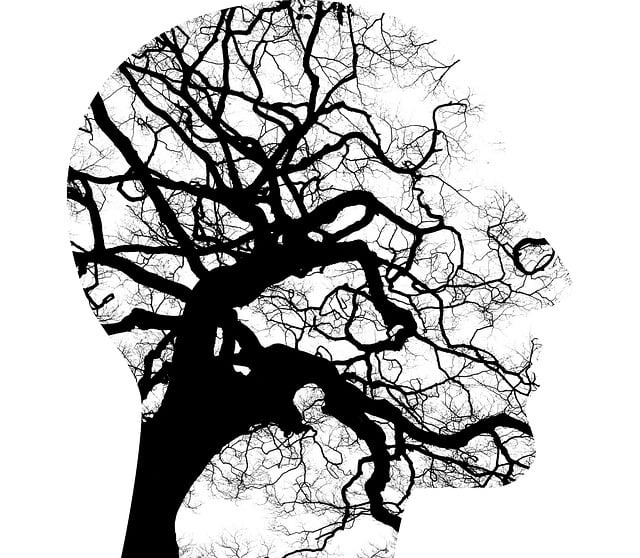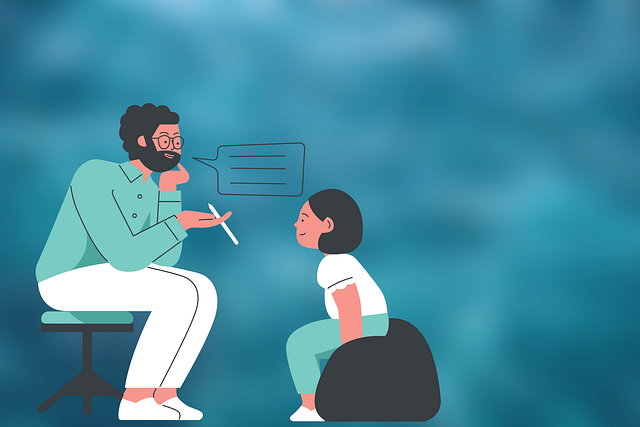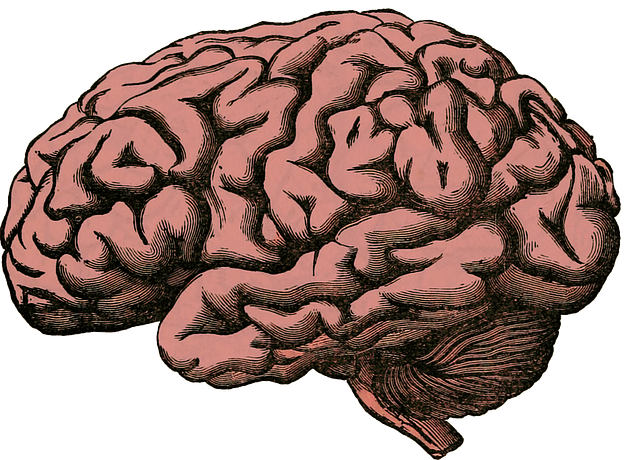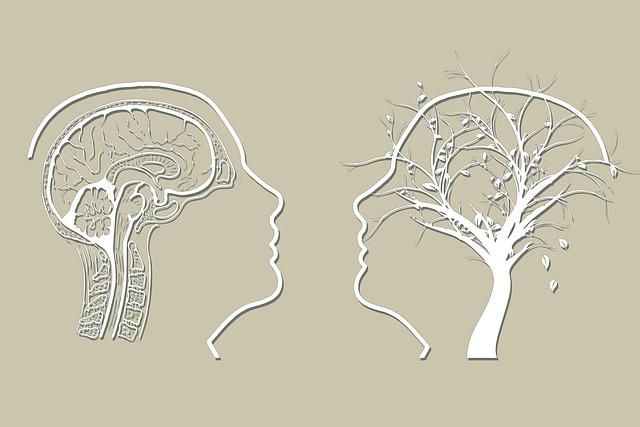Emotional intelligence (EQ) is a crucial skill set for children, promoting stress management, conflict resolution, and empathy. Early interventions like therapy for children affected by postpartum depression, Mental Wellness Journaling, Stress Management Workshops, and Crisis Intervention programs enhance resilience and life satisfaction. Postpartum depression, a significant mental health concern for new mothers, impacts their emotional bonds with children. Effective therapy, combined with play-based learning and open communication strategies, fosters EI in kids, potentially mitigating issues like postpartum depression. Therapy serves as a powerful tool to address postpartum depression proactively, enhancing secure attachment relationships and promoting healthy emotional expressions for both children and families.
Emotional intelligence (EI) is a cornerstone of healthy development, shaping children’s ability to navigate relationships and life challenges. This article delves into the multifaceted aspects of EI, exploring its profound impact on young minds. We discuss strategies to build EI through play and communication, with a specific focus on postpartum depression (PPD) – a significant factor affecting mothers’ emotional connections with their infants. Additionally, we examine the vital role therapy plays in enhancing children’s emotional well-being post-PPD.
- Understanding Emotional Intelligence and Its Impact on Children's Development
- Identifying Postpartum Depression in Mothers and its Effect on Emotional Connections
- Strategies for Building Emotional Intelligence in Kids Through Play and Communication
- The Role of Therapy in Enhancing Emotional Well-being for Children and Families Postpartum
Understanding Emotional Intelligence and Its Impact on Children's Development

Emotional intelligence (EQ) is a child’s ability to recognize, understand, and manage their own emotions, as well as empathize with others. This crucial skill set forms the foundation for healthy social interactions, effective communication, and robust mental wellness. Research has shown that children with high EQ are better equipped to handle stress, resolve conflicts, and build strong relationships, all of which contribute to their overall development and success in life.
Early interventions, such as therapy for children experiencing postpartum depression or utilizing Mental Wellness Journaling Exercise Guidance, can play a pivotal role in fostering emotional intelligence. Stress Management Workshops Organization and Crisis Intervention Guidance programs offer structured learning environments where kids can develop coping strategies, learn to express their feelings, and build empathy. By nurturing these skills, parents and caregivers can ensure that children are well-prepared to navigate the complexities of growing up, ultimately enhancing their resilience and overall life satisfaction.
Identifying Postpartum Depression in Mothers and its Effect on Emotional Connections

Postpartum depression is a significant mental health concern that can deeply impact new mothers and their emotional connections with their children. Often overlooked or misdiagnosed, this condition presents a unique set of challenges for both mother and child. Symptoms may include intense sadness, anxiety, fatigue, and feelings of inadequacy, often leading to withdrawal from social interactions and a lack of pleasure in daily activities. These emotional changes can strain the bond between mother and child, affecting the child’s overall development and sense of security.
Early identification is crucial for effective therapy for children affected by postpartum depression. Healthcare providers must be vigilant in screening for these symptoms, especially during routine check-ups. Burnout prevention strategies for healthcare providers are also essential as they directly interact with mothers during this vulnerable period. By promoting emotional regulation through Mind Over Matter principles and providing support systems, healthcare professionals can help mothers navigate their mental health journey. This not only ensures better maternal well-being but also fosters healthier emotional connections within the family unit.
Strategies for Building Emotional Intelligence in Kids Through Play and Communication

Building emotional intelligence (EI) in children is a nurturing process that can begin at a young age through play and effective communication. Play serves as a powerful tool to help kids understand and express their emotions, fostering a sense of self-awareness. Simple games and activities allow children to explore different scenarios, practice empathy, and develop strategies for managing their feelings. For instance, role-playing can help them navigate social interactions, learn from mistakes, and build resilience.
Encouraging open communication is another vital strategy. Mindfulness meditation techniques can be introduced gradually, helping kids become more attuned to their thoughts and emotions. By teaching them to recognize and acknowledge feelings, professionals and caregivers can support the development of healthy emotional responses. Additionally, risk management planning for mental health professionals can guide adults in facilitating age-appropriate conversations about emotions, providing a safe space for children to share their experiences, and offering appropriate guidance. Effective communication strategies, when combined with play-based learning, contribute significantly to raising emotionally intelligent children who can navigate social and emotional challenges with ease.
The Role of Therapy in Enhancing Emotional Well-being for Children and Families Postpartum

Postpartum depression is a common yet challenging experience for many new mothers, and it can significantly impact their ability to bond with their infants. This is where therapy steps in as a powerful tool to enhance emotional well-being for both children and families. Through specialized therapeutic interventions, parents can learn effective coping strategies to manage their symptoms and create a healthier environment for their growing family.
Children, being highly sensitive to their caregivers’ emotions, stand to benefit immensely from these therapeutic processes. By addressing postpartum depression proactively, therapists help foster secure attachment relationships, promote healthy emotional expressions, and strengthen the parent-child bond. Additionally, therapy provides parents with stress reduction methods, inner strength development techniques, and emotional healing processes tailored to their unique needs, ultimately contributing to a more positive family dynamic and happier outcomes for everyone involved.
Emotional intelligence is a cornerstone of healthy development, with early interventions like play-based learning and open communication proving effective. For mothers struggling with postpartum depression, seeking therapy can be life-changing, fostering secure emotional connections with their children. By integrating these strategies, parents can create nurturing environments that support emotional well-being for both themselves and their kids, ultimately paving the way for happier, more resilient families post-pregnancy.












